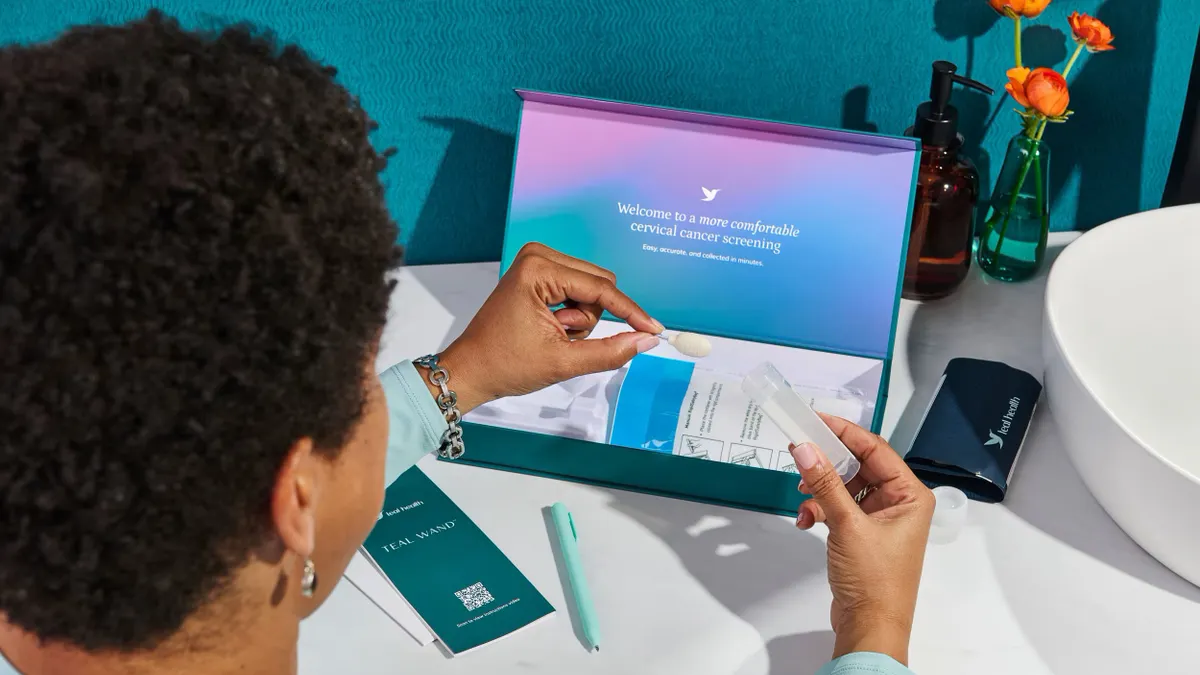Dive Brief:
- The Food and Drug Administration has approved Teal Health’s cervical cancer screening sample collection device, the company said Friday.
- Teal said the product is the first FDA-approved at-home self-collection device for cervical cancer screening. Patients attend a telehealth consultation, collect their sample, send the material to a lab and receive their results in a patient portal.
- The company disclosed the approval alongside the results of a clinical trial, which found the test correctly identified 95% of HPV-positive samples detected using the clinician-collected method.
Dive Insight:
The U.S. and other countries have given women more cervical cancer screening options in recent years. BD won FDA approval for a kit that allows patients to self-collect samples in healthcare settings one year ago. Other countries have begun offering at-home sample collection. Population test coverage increased from 75% to 85% in Stockholm in one year when the Swedish city sent out self-sampling kits.
Teal is bringing at-home self-collection to the U.S. through the approval of the Teal Wand. The device is about the diameter of a tampon. Users move a dial in the handle of the device to extend, retract and rotate a sample collection sponge built into the tip.
The company raised $10 million in January, bringing total financing up to $23 million. Serena Ventures, a venture capital funding backed by Serena Williams, has invested in Teal. Labcorp is one of the company’s partners.
Teal validated its device in a clinical trial that enrolled more than 600 people across 16 sites in the U.S. All participants self-collected a sample and underwent a clinician speculum exam and sample collection. The samples were processed using Roche’s Cobas HPV, a commercial test that Teal will continue to use now its device is on the market.
The company said it was aiming to show the self-collection results correctly identified at least 87% of the positive samples detected after clinician collection. Teal cleared that bar, reporting a positive percent agreement of 95%. The company also said it exceeded its negative percent agreement target.
Teal plans to begin shipping the device in June, starting in California and then expanding nationwide. The company said it is working with major insurance providers and plans to have flexible payment options.
A BD survey found 19% of women in the U.S. have delayed a gynecology visit because they did not have insurance. The survey suggested there is a market for at-home screening, with 66% of women in the U.S. saying they would be interested. Teal found 94% of women would prefer self-collection using its device over in-person screening, provided the results are reliable.













